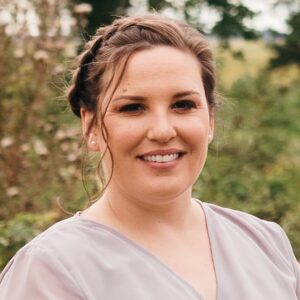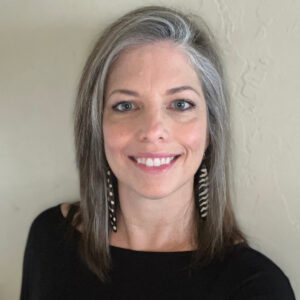The topic of today’s article by HBG consultant Anne Melton is very close to my heart. Being mentored by two great colleagues on my first job gave me early success and the knowledge and camaraderie fostered my deep love for this profession. Today Anne shares some great advice for making the most of your career growth by taking advantage of mentorship opportunities, both as a mentee and mentor (because one *does* follow the other!). ~Helen
I would venture to guess that most of us ended up in prospect research without it being our original career plan. After all, there isn’t a formalized path for prospect research and development in schools or vocational training programs. This leaves on-the-job learning as the primary way to understand the prospect research ropes. This is where mentorship comes in, which can play a vital role in helping onboard new researchers.
Mentorship is personal to me, as I have the Apra-NW mentorship program to thank for my career in prospect research. I had worked in development for several years and was ready for a change, but I wanted to apply my fundraising background to a new career path without starting from scratch. I found Apra-NW and couldn’t believe I had never heard of this niche in development work before!
My interest was piqued, but I wanted a clearer picture of the field and some practical experience before making the leap. After signing up for a (very cost-effective) Apra-NW membership and enrolling in the mentorship program, I was matched with the illustrious Cecilia Hogan, the person who literally wrote the first book on prospect research and development! The sun was shining upon me that day.
During my sessions with Cecilia, she shared with me the ins and outs of the sector, taught me practical things like capacity ratings, and gave me homework to practice my research skills. A few months after meeting, a research position opened up at Cecilia’s organization and she encouraged me to apply. Much to my delight, I was hired! My new supervisor then stepped into the mentorship role for me as I learned the day-to-day tasks of being a researcher and helped me map out a vision for my new career.
If you’re ready to start on your own mentorship journey, whether as a mentor or mentee, here are a few suggestions to make the most out of the experience:
Mentees: be proactive and seek out opportunities.
- If you have access to a formal mentorship program through your Apra chapter, this is a great way to get connected with a mentor. If you’re looking for opportunities outside of a formal program, check out LinkedIn or read through conference speaker bios to find someone whose career you find interesting. Reach out to them and see if they’d be willing to join you for an in-person or virtual cup of coffee. Don’t be shy! If your personalities click, see if they’d be willing to serve as your mentor. Colleagues in prospect research are nearly always willing to help, and the worst that can happen is that they say no, or not right now. If that’s the case, ask if they have other colleagues they recommend you reach out to. Believe me, there are plenty of seasoned researchers who would be delighted to help you.
Mentors: throw your hat into the ring!
- You don’t have to know everything there is to know about prospect research in order to serve as a mentor. Even just a few years of experience will be valuable to someone just starting out. If you have some time to spare, sign up to serve as a mentor, or find another informal way to connect with someone beginning their prospect research career through your workplace, conference networking, or another source, like posting on PRSPCT-L that you’re ready and willing to help!
Mentors: speak from experience, but remember you don’t have to have all the answers.
- You are fit to serve as a mentor because you have the work and life experience to give advice and guidance to someone who is seeking it out. However, recognize that your advice, and your path, is just one of many possibilities. Engage in a dialogue about the different ways your mentee could approach their career.
Mentors and mentees: establish goals at your first meeting.
- Your first meeting is an opportunity to set expectations and goals. What is the mentee hoping to gain from this experience? Is there anything in particular they want to focus on? How does the mentee learn best? Establish a timeline, too. How often will you meet? For how long?
Mentors and mentees: create a safe space.
- Both mentors and mentees will benefit from a space where each can speak freely and honestly. Intentionally create this environment and respect confidentiality, a core tenet of our profession.
Mentors and mentees: respect one another’s time.
- We’re all busy, and taking time from our day-to-day work for mentoring sessions can be tricky, especially for those with overflowing plates, less seniority, and/or hourly employees. Uphold your commitments to one another, and if something comes up and you need to cancel, give as much notice as you can. Reschedule as soon as possible so your sessions don’t fall through the cracks.
Mentors and mentees: follow through.
- If you commit to doing something, honor that commitment. And if you’re not able to, be open and honest about why you can’t, and then follow through as soon as possible.
For mentees: pay it forward.
- If you’ve benefitted from your experience as a mentee, pay it forward when you are ready and able. How exciting that you now get to step into the role of mentor and help someone else navigate their prospect research journey!
My career has been a winding road to end up where I was meant to be. I’ve been fortunate that every step of the way I’ve had mentors who have graciously lent me their time, advice, and expertise as I tried to figure it all out. I am grateful to each and every one of them. No matter where you are in your career, serving as a mentor or acting as a mentee helps foster an environment of learning, support, and camaraderie within our unique field – something we can all benefit from!




